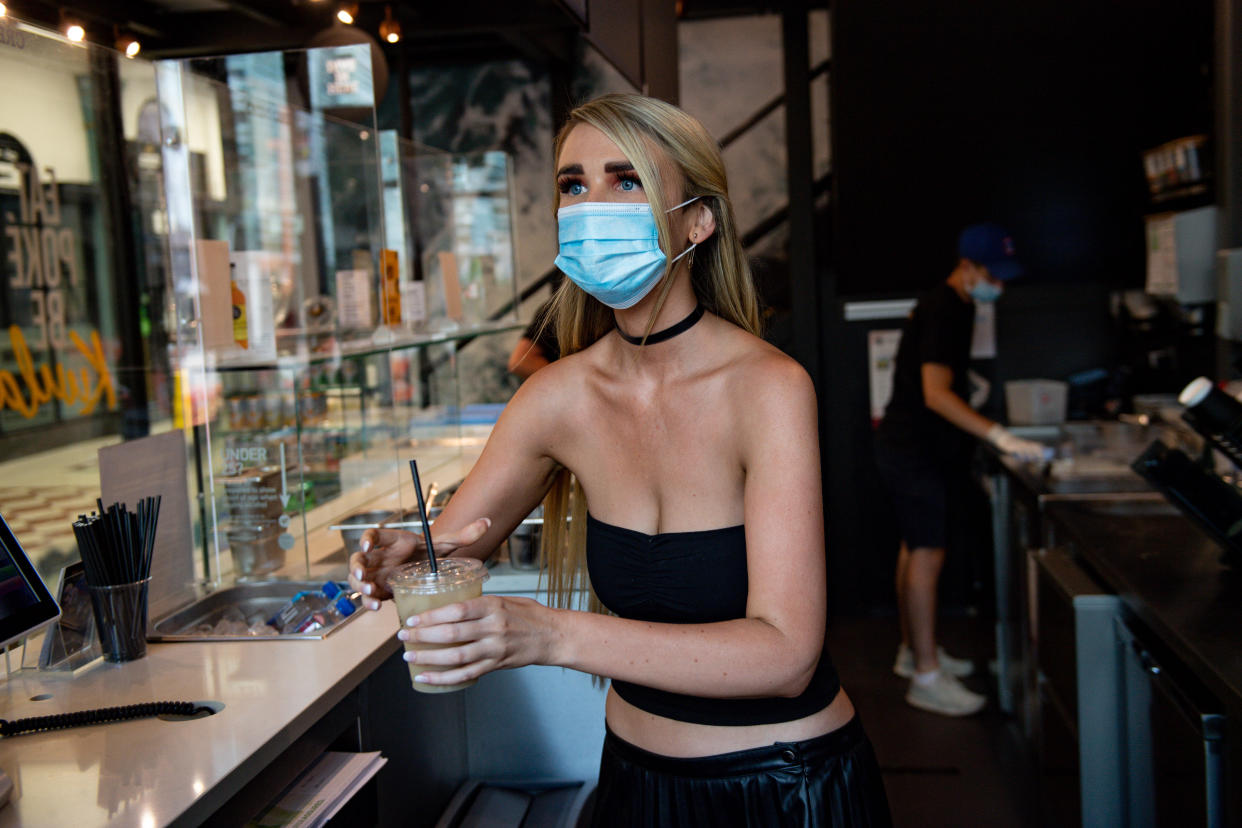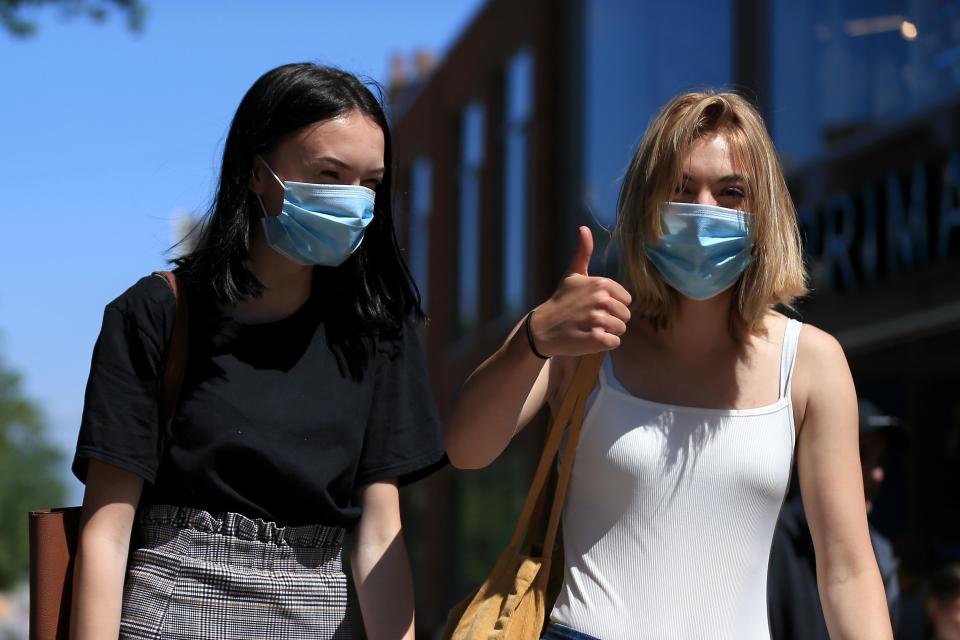Coronavirus: 8.5% of patients do not produce antibodies against a second infection

A new study suggests up to 8.5% of people who overcome the coronavirus do not develop antibodies against a second infection.
Scientists from St George’s University of London looked for the immune-fighting proteins in 177 people in the weeks after they fought off the infection.
Antibodies prevent a virus from reinfecting an individual, but tend to diminish over time.
With the number of confirmed coronavirus cases approaching 8 million, one expert pointed out close to 800,000 may become reinfected, reducing hopes of herd immunity.
“Reassuringly”, those who did produce these antibodies continued to do so two months later.
The same expert stressed, however, that we need to understand the immune response several years down the line.
Early research suggests the coronavirus is mild in four out of five cases, but it can trigger a respiratory disease called COVID-19.

Coronavirus: Eight in 100 ‘do not produce antibodies’
When the immune system recognises an infection, it launches a response that includes the release of antibodies.
Once the infection has been overcome, memory antibodies circulate at low levels in the bloodstream.
If the same virus is encountered again, the immune system ramps up production of these antibodies, preventing the infection taking hold.
Officials are cautiously optimistic that immunity to the coronavirus lasts for at least the short or intermediate term. Beyond that, things become muddled.
This is one reason why the suggestion of “immunity passports” to allow previously infected people to go back to their normal routine has been more or less dismissed.
After looking at 177 confirmed coronavirus patients, the St George’s scientists found up to 8.5% did not produce antibodies against the infection weeks later.
Perhaps surprisingly, higher antibody counts were associated with being non-white. This is despite statistics showing people from black, Asian or ethnic minority backgrounds are more likely to develop coronavirus complications.
The results have been released preliminarily and not yet been published in a peer-reviewed journal. Peer review is when experts not involved in the research weigh in on its strengths and weaknesses.
‘Our real concern is to see what happens at one or two years’
Speaking of the study, Professor Danny Altmann from Imperial College London said: “It’s a useful addition to the plethora of such antibody studies appearing from cohorts around the world.
“We learn from this that around 90% of individuals make an antibody response, this is still detected out to two months, and it’s not enormously influenced by the age, gender or respiratory symptoms of the people studied.
“The flipside of their data is the question of what is happening in the 10% or so who produce no antibody.
“If you extrapolate to global figures, it means that of the estimated 8 million or so cases globally, some 800,000 carry no protective antibody”.
It is unclear, however, if non-antibody aspects of the immune response come into play.
“Antibodies are only one of the many different types of immune response an individual can make to clear an infection,” said Professor Eleanor Riley from the University of Edinburgh.
The results also revealed that those who produced antibodies continued to do so at the two-month follow up.
Professor Altmann called this finding “reassuring”, but added: “it would be remarkable for an immune response not to last this long.
“Our real concern is to see what happens at one or two years, for which we need to wait and see.”
Professor Riley stressed it is “not uncommon for a small proportion of individuals to have undetectable antibody levels after an acute infection”.
“These data look reassuringly normal,” she said.
What is the coronavirus?
The coronavirus is one of seven strains of a virus class that are known to infect humans.
Others cause everything from the common cold to severe acute respiratory syndrome (Sars), which killed 774 people during its 2002/3 outbreak.
Since the coronavirus outbreak was identified at the end of 2019, more than 7.9 million cases have been confirmed worldwide, according to Johns Hopkins University.
Of these cases, over 3.7 million are known to have recovered.
Globally, the death toll has exceeded 433,900.
The coronavirus mainly spreads face to face via infected droplets expelled in a cough or sneeze.
There is also evidence it is transmitted in faeces and can survive on surfaces.
Symptoms include fever, cough and a loss of taste or smell.
COVID-19 has no “set” treatment, with most patients naturally fighting it off.
Those requiring hospitalisation are given “supportive care”, like ventilation, while their immune system gets to work.
Officials urge people ward off infection by washing their hands regularly and maintaining social distancing.
Coronavirus: what happened today
Click here to sign up to the latest news, advice and information with our daily Catch-up newsletter
Read more about COVID-19
How to get a coronavirus test if you have symptoms
How easing of lockdown rules affects you
In pictures: How UK school classrooms could look in new normal
How public transport could look after lockdown
How our public spaces will change in the future
Help and advice
Read the full list of official FAQs here
10 tips from the NHS to help deal with anxiety
What to do if you think you have symptoms



